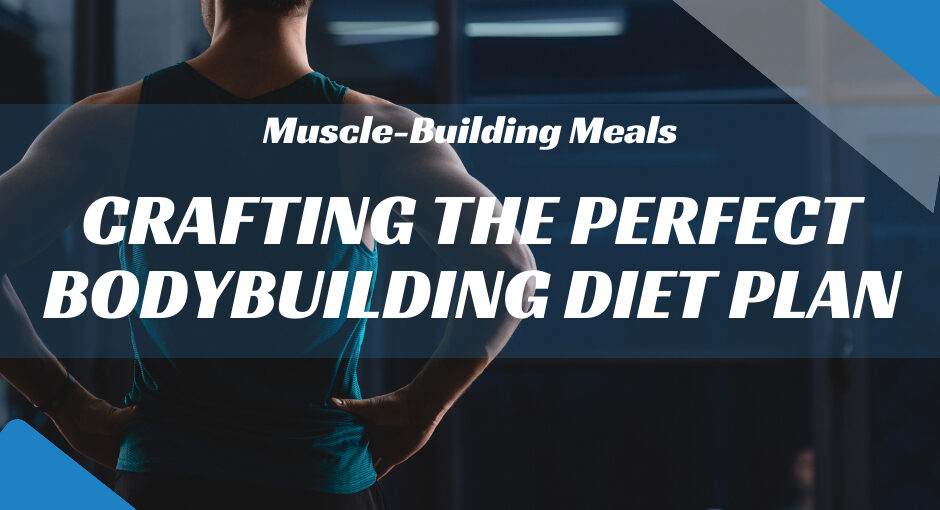Understanding the Basics of Muscle-Building Meals
When embarking on a bodybuilding journey, understanding the fundamentals of muscle-building meals is essential. Imagine fueling your body as you would a high-performance vehicle—only the best quality ingredients will keep it running at its peak. The focus needs to be on balanced meals rich in essential nutrients that work together to support muscle growth and recovery.
Here are some critical components for muscle-building meals:
- Quality Protein Sources: Incorporate lean meats, fish, eggs, and plant-based proteins like legumes and quinoa.
- Complex Carbohydrates: Choose whole grains, fruits, and vegetables that provide the sustained energy needed for workouts.
- Healthy Fats: Opt for sources like nuts, avocados, and olive oil, which are vital for hormone production and recovery.
Importance of Nutrition in Bodybuilding
Nutrition plays a pivotal role in your bodybuilding success. Without the right fuel, your workouts can suffer, and muscle growth may plateau. I remember when I first started, I underestimated how much my diet impacted my gains.
It’s not just about lifting weights; it’s about what you put on your plate. A proper bodybuilding diet supports recovery, enhances performance, and ensures you’re maximizing your workout efforts. So, let’s dive deeper into how to effectively design a nutrition plan that aligns perfectly with your bodybuilding goals!
Essential Nutrients for Muscle Growth
Protein: The Building Block of Muscles
Let’s kick things off with protein—the cornerstone of muscle growth. Think of protein as the bricks in the construction of a building; without sufficient bricks, the structure can’t stand. As a bodybuilder, you should aim for about 1.6 to 2.2 grams of protein per kilogram of body weight daily. It means including:
- Lean meats: Chicken, turkey, and lean cuts of beef
- Fish: Salmon and tuna are excellent sources
- Dairy: Greek yogurt and cottage cheese
- Plant-based options: Lentils, chickpeas, and quinoa
I remember when I started tracking my protein intake. It was surprising to see how much I needed to hit those targets!
Carbohydrates: Fueling Your Workouts
Next up: carbohydrates. Think of them as the gasoline for your workouts. They provide the energy you need to power through intense training sessions and optimize performance.
Aim for complex carbs, which offer sustained energy. Good sources include:
- Whole grains: Brown rice, oats, and quinoa
- Starchy vegetables: Sweet potatoes and butternut squash
- Fruits: Bananas and berries for those quick boosts of energy
When I started prioritizing carbs pre-workout, I noticed a significant difference in my stamina.
Healthy Fats: Supporting Muscle Recovery
Lastly, let’s talk about healthy fats. Often overlooked, these fats play a crucial role in hormone production and muscle recovery. Incorporating sources like:
- Nuts and seeds: Almonds, walnuts, and chia seeds
- Avocados: Full of healthy monounsaturated fats
- Olive oil: An excellent addition to salads or cooking
Including these in your diet not only aids recovery but also keeps you feeling fuller for longer. Balancing these essential nutrients creates a solid foundation for your muscle growth journey!
Designing Your Bodybuilding Diet Plan
Calculating Your Protein Needs
Now that you understand the essential nutrients let’s move into designing your bodybuilding diet plan, starting with protein needs. Calculating your protein requirements is crucial for muscle repair and growth. A simple formula is to multiply your weight in kilograms by 1.6 to 2.2 grams of protein. For instance, if you weigh 75 kg, aim for 120 to 165 grams of protein daily.
Some easy ways to hit those numbers can include:
- Four servings of chicken breast (each 100 grams)
- Two cups of Greek yogurt
- A handful of protein-rich snacks, like almonds
Determining the Right Carb Intake
Next, let’s talk carbs. Carbohydrates are vital for maintaining energy levels, especially during intense workouts. A good starting point is to consume about 3 to 7 grams of carbs per kilogram of body weight, depending on your training intensity. For example:
- Moderate training (3 g/kg): 225 grams for a 75 kg individual
- Intense training (7 g/kg): 525 grams for the same weight
Make sure to focus on complex carbs for sustained energy!
Balancing Fats for Optimal Performance
Lastly, don’t forget about healthy fats. Aim for approximately 20-35% of your daily calorie intake from fats. These fats play a pivotal role in hormone production and overall health. For instance:
- If you’re eating 2,500 calories a day, that translates to around 56 to 97 grams of fat daily.
Incorporate a mix of nuts, seeds, avocados, and oils to maintain that right balance. Remember, this personalized approach ensures you’re fueling your body effectively for those intense workouts ahead!
Pre-Workout and Post-Workout Nutrition
Fueling Your Body Before Training
Now that you have a solid understanding of your bodybuilding diet plan let’s dive into the critical aspects of pre-workout and post-workout nutrition. Fueling your body before training is key to maximizing your performance and stamina. Aim to eat a balanced meal about 60-90 minutes before your workout.
What should you include? Here are some essentials:
- Complex carbohydrates: Oats, whole-grain bread, or sweet potatoes for sustained energy.
- Protein: Incorporate lean protein sources such as chicken, turkey, or even a protein shake.
- Healthy fats: Avoid too much fat right before a workout since it can slow digestion, but a small amount of nuts is fine.
For example, I’ve personally found success with a banana and a scoop of peanut butter before hitting the gym—a quick energy boost!
Replenishing Nutrients After a Workout
After your workout, your body is like a sponge, ready to soak up nutrients. Recovery nutrition is vital for muscle repair and growth. A good rule of thumb is to aim for a meal within 30-60 minutes post-workout.
Focus on:
- Protein: A post-workout shake with whey protein is convenient and effective.
- Carbs: Include a combination of fast-digesting carbs, like a protein bar or fruit, to replenish glycogen stores.
- Hydration: Don’t forget to drink water or a recovery drink to rehydrate.
I remember how much better I felt when I started prioritizing recovery nutrition—the difference was night and day! By focusing on what you eat before and after workouts, you’ll enhance your muscle growth and overall performance.
Meal Timing and Frequency
Understanding the Importance of Meal Timing
As we delve deeper into optimizing your bodybuilding diet, meal timing plays a pivotal role in enhancing your results. The windows around your workouts are particularly crucial. Consuming a well-balanced meal prior to training ensures your body has the fuel it needs for peak performance.
Similarly, post-workout nutrition is vital for recovery. Aim to eat within that 30-60 minute window after exercising. When I first started tracking my meal timing, I was amazed at how much my energy levels and recovery improved.
To make it easier, consider these pointers:
- Pre-workout meal: Focus on carbs and protein about 1-2 hours before training.
- Post-workout meal: Prioritize protein and carbs, ideally within an hour.
The Role of Meal Frequency in Muscle Growth
Alongside timing, meal frequency also contributes to muscle growth. Instead of three big meals, splitting your food intake into 5-6 smaller meals can keep your body in an anabolic state longer, promoting muscle synthesis. This approach can help stabilize your energy levels and prevent hunger pangs.
Here’s how to distribute your meals:
- Breakfast: Start strong with protein and carbs.
- Snack: A mid-morning protein shake or yogurt.
- Lunch: A balanced meal with carbs, protein, and fats.
- Afternoon Snack: Include some fruit and nuts.
- Dinner: Consists of lean protein, vegetables, and complex carbs.
- Evening Snack: A low-carb, high-protein option before bed.
This balanced approach to meal timing and frequency will help you achieve your bodybuilding goals!
Hydration and Supplements for muscle-building
Importance of Hydration in Muscle Recovery
As we wrap up discussing meal timing and frequency, we can’t overlook hydration—a key player in muscle recovery. Water is essential not only for overall health but also for effectively transporting nutrients to your muscles after workouts. Staying well-hydrated can significantly impact your recovery time and performance.
During your training sessions, you can lose a lot of fluids. To keep your body functioning optimally, aim for:
- At least 2-3 liters of water daily, adjusting based on exercise intensity.
- Electrolytes: Consider adding an electrolyte drink or supplement if you’re sweating heavily or training for extended periods.
I remember when I started consistently hydrating before, during, and after workouts; the improvement in my recovery time was incredible!
Supplement Considerations for Bodybuilders
While whole foods should be your primary focus, some supplements can give you that extra edge in your muscle-building journey. Here are a few to consider:
- Whey Protein: Great for post-workout recovery.
- Creatine: Can enhance strength and muscle mass.
- Branched-Chain Amino Acids (BCAAs): Helpful for reducing muscle soreness.
Before diving into supplements, always do your research and consult with a healthcare professional to find what’s right for your needs. With proper hydration and the right supplements, you’ll be setting yourself up for success in your muscle-building efforts!
Monitoring Progress and Making Adjustments
Tracking Your Macros and Calories
Now that you’re equipped with the right knowledge about hydration and supplements, it’s time to focus on monitoring your progress and making necessary adjustments. One of the best ways to understand how your body is responding to your diet and training is through tracking your macros and calories.
Using an app or a simple spreadsheet, start logging in:
- Protein: Aim for that target range we discussed earlier.
- Carbohydrates: Prioritize complex carbs while tracking your intake.
- Fats: Ensure you’re within that 20-35% of your daily caloric intake.
When I first began tracking my macros, I was surprised to see how easy it was to stray from my targets. By keeping a close eye on what I consumed, I learned to make smarter food choices that aligned with my goals.
Recognizing When to Adjust Your Diet Plan
As you monitor your progress, it’s crucial to recognize when it’s time to make adjustments. If you aren’t seeing muscle gains or energy levels declining, here’s what to consider:
- Increase or decrease caloric intake: Depending on whether your goal is to bulk up or cut down.
- Change macro ratios: If you’re feeling sluggish, you might need more carbs.
- Assess workout intensity: Are you pushing hard enough? Adjust your diet to match your energy expenditure.
Remember, flexibility is key! Regularly reassessing your diet ensures you’re on track to achieving those muscle-building goals, leading you one step closer to your desired physique.
Conclusion
Recap of Key Points
As we wrap up our journey through crafting the perfect bodybuilding diet plan, let’s recap some of the crucial points we’ve discussed. Your diet should be centered around:
- Essential Nutrients: Prioritize protein, carbohydrates, and healthy fats for optimal muscle growth and recovery.
- Meal Timing & Frequency: Focus on eating before and after workouts, and consider splitting your meals into smaller portions throughout the day.
- Hydration: Stay hydrated to support recovery and performance.
- Monitoring Progress: Track your macros and be proactive in adjusting your diet based on your progress and needs.
When I reflected on these elements, it became clear that each aspect is interconnected, working together to support my bodybuilding journey.
Final Tips for Crafting Your Perfect Bodybuilding Diet Plan
To further tailor your diet plan, here are some final tips:
- Stay flexible: Adapt your diet based on how your body responds.
- Prep meals ahead: Cooking in bulk can save time and help you stick to your goals.
- Listen to your body: Don’t ignore signs of fatigue or hunger; they provide insight into what your body needs.
By following this comprehensive approach, you’ll be well-equipped to achieve your bodybuilding aspirations and sculpt the physique you desire!






